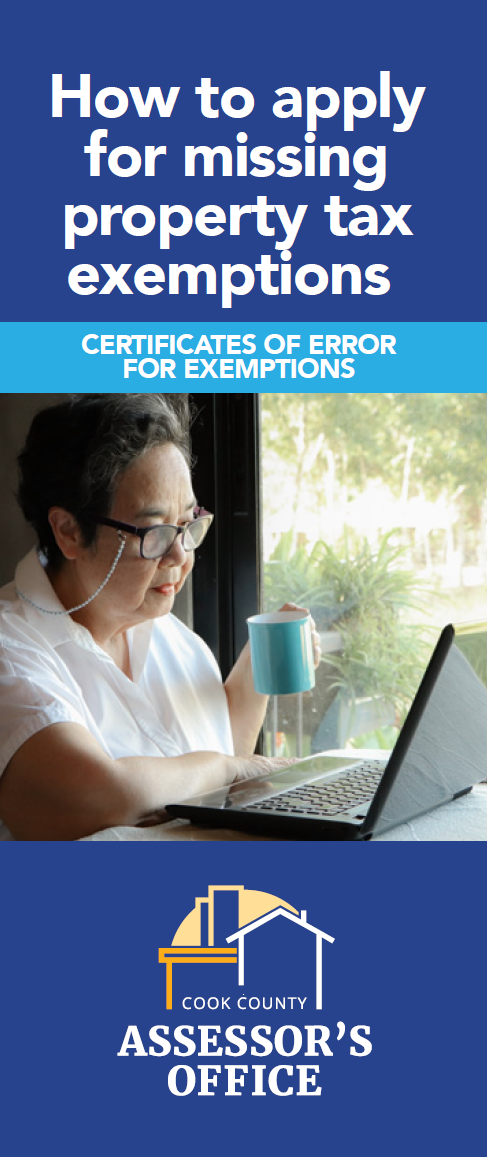Info Tab Content
I have never applied for the Homeowner Exemption. How do I apply?
If you have never received a Homeowner Exemption on your home, you will need to file an initial application. Exemption forms may be filed online, or you can obtain one by calling one of the Assessor's Office locations or your local township assessor.
Do I have to apply every year?
No. Once you apply, the Homeowner Exemption will renew automatically in subsequent years as long as your residency remains the same.
Can I receive a prorated exemption if my home is new construction and I move in after January 1?
This exemption will be prorated if you purchased a newly constructed home that was not ready for occupancy until sometime after January 1 of the tax year in question. For further assistance regarding an exemption for a newly constructed home, please contact us.
How are Homeowner Exemption savings calculated?
The Homeowner Exemption reduces the Equalized Assessed Value (EAV) of a property by $10,000. EAV is the partial value of a property used to calculate tax bills. It is important to note that the exemption amount is not the dollar amount by which a tax bill is lowered. Your property tax savings from the Homeowner Exemption is calculated by multiplying the Homeowner Exemption savings amount ($10,000) by your local tax rate. Your local tax rate is determined by the Cook County Clerk and can be found on your second installment tax bill or by contacting the Cook County Clerk's Office at 312- 603-6566.
Please see the example below.
| $100,000 |
2021 Estimated Fair Market Value |
| X.10 |
Assessment Level (10% for residential properties) |
| $10,000 |
2021 Assessed Value |
| X 2.916 |
2021 State Equalizer |
| $29,160 |
2021 Equalized Assessed Value (EAV) |
| -10,000 |
2021 Homeowner Exemption |
| $19,160 |
2021 Adjusted Equalized Assessed Value |
| X.08 |
2021 Tax Rate (example; your tax rate could vary) |
| $1,532.80 |
Estimated Tax Bill in dollars |
I am no longer eligible for the Homeowner Exemption, how do I opt-out?
Please complete the Exemption Waiver.
How can I apply for a Homeowner Exemption for a prior tax year?
If you were eligible for the exemption in a prior Tax Year but the exemption was not on your bill, you can apply for a refund or corrected bill by filing for a certificate of error.
+ Frequently Asked Questions


